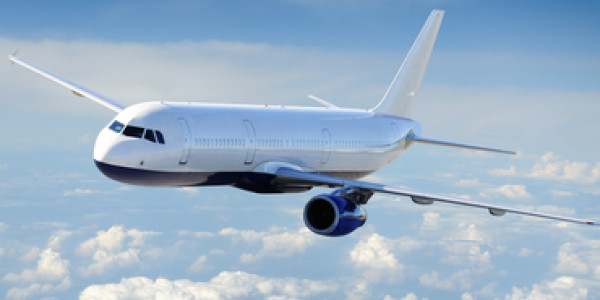New research finds using existing, high-integrity carbon credits would meet emission goals at around $4 per tonne By Will Nichols 30 Jul 2013 Controlling CO2 emissions using market mechanisms could cost airlines less than the revenue they make from checked bags, extra legroom, and in-flight snacks, new analysis has found. The industry could be paying as little as $4 a tonne of CO2 in 2015 by purchasing high-integrity carbon credits already available in the world’s carbon trading systems, according to a new report by Bloomberg New Energy Finance and NGO the Environmental Defense Fund (EDF) that urges the industry to adopt tougher emissions targets. The findings will heap further pressure on international leaders and the International Civil Aviation Organisation (ICAO) to reach a decision on implementing a global market-based mechanism to control aviation emissions when it meets in September. Aviation accounts for between two and three per cent of global and some analysts expect this to quadruple by 2050 if no action is taken to curb emissions across the sector. In 2010, ICAO agreed non-binding targets of improving fuel efficiency by two per cent a year and delivering carbon neutral growth from 2020, before then halving net emissions by 2050 compared to 2005 levels. Airlines and manufacturers have also experimented with new technology such as lighter planes and biofuels in order to help curb emissions. However, many airlines were fiercely opposed to EU regulations forcing them to buy carbon credits to cover emissions during flights in and out of its airports, raising concerns that efforts to deliver an international emissions management mechanism could be thwarted. The EU’s firm stance on aviation carbon trading was eventually softened when it announced the rule would be suspended for a year to ease the passage of an ambitious global deal at ICAO . Since then, the industry has responded to pressure from NGOs, investors, and customers to curb its impact , and in June the International Air Transport Association (IATA) called on world governments to agree measures to manage emissions from 2020 – although the resolution fell short of the detailed plans green campaigners want to see. Today’s research argues the estimated 4.4 billion tonnes of surplus credits in world carbon markets could present an opportunity for aviation to harness other industry’s emissions reductions, alongside its own, to meet its carbon targets. BNEF and the EDF say these credits could, in principle, meet almost half of airlines’ potential emission reduction requirements for the 30 years between 2020 and 2050. They calculate that if governments adopt tough criteria to ensure offsets represent real emission reductions, the cost of these credits to the aviation industry would be between $4 and $6 per tonne in 2015. These costs would represent less than 0.5 per cent of the industry’s total revenue over this period – three times less than the share of revenue collected last year from checked bags, extra legroom and in-flight snacks – and would add less than $2 to a typical transatlantic fare. Guy Turner, chief economist at BNEF, said the widespread availability and low cost of carbon credits through a market-based mechanism could enable the indsutry to take on more ambitious targets. “These findings show that the international aviation sector can control its CO2 emissions relatively cheaply by using market-based mechanisms,” he said. “The small cost and the ability to pass any costs through into ticket prices, should encourage the international aviation sector to accelerate and deepen its emission reduction pledges. More ambitious emission reductions now look much more doable, than mere stabilisation from 2020.” Increased demand for carbon offset credits could also help breathe some fresh life into a market that has suffered in recent years as a result of an oversupply of allowances that has led to low prices. Taylor Scott International
Report: Carbon Markets Offer ‘Cheap’ Aviation Emissions Cuts

This entry was posted in Investment, investments, News, Property, Taylor Scott International, TSI, Uk and tagged aviation, calendar, carbon, chat, investment, nichols, report. Bookmark the permalink.







